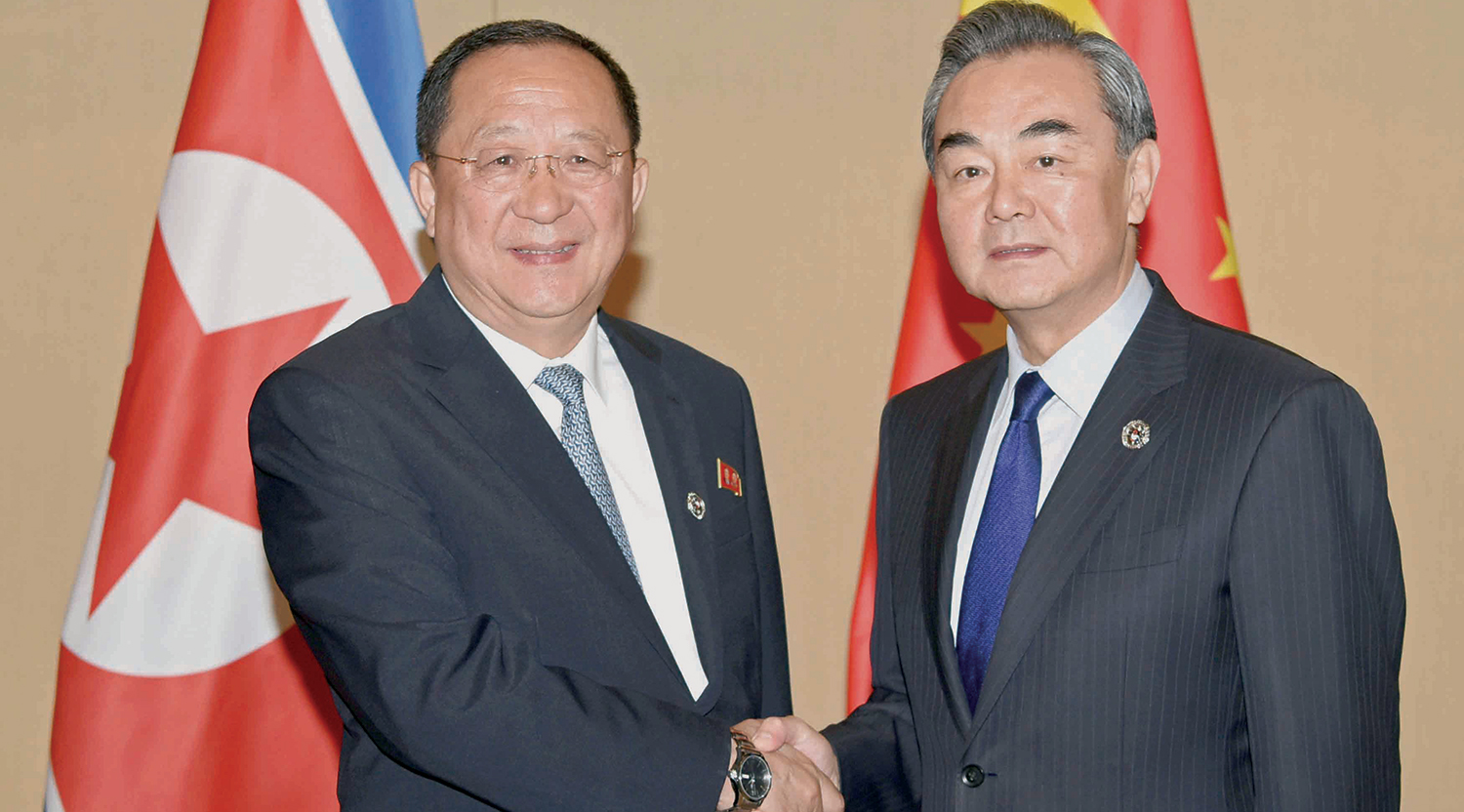

MANILA: China’s foreign minister said on Sunday new UN Security Council sanctions on North Korea were the right response to a series of missile tests, but dialogue was vital to resolve a complex and sensitive issue now at a “critical juncture”.
Wang Yi, in what he described as “very thorough” bilateral talks on Sunday with North Korean Foreign Minister Ri Yong Ho at a regional meeting in Manila, said he had told him that North Korea should not carry out nuclear tests which would only stoke tensions and calmly assess the UN resolutions.
The UN Security Council on Saturday unanimously imposed the new sanctions on Pyongyang over its two July intercontinental ballistic missile tests, a move that could slash by a third the Asian state’s $3 billion annual export revenue.
Wang said diplomatic and peaceful means were now necessary to avoid tensions and an escalation of the crisis.
“After the implementation of the resolutions, the Korean peninsula issue enters into a critical juncture,” Wang told reporters on the sidelines of the Asean meeting in Manila.
“We call on all sides to take a responsible attitude when making judgements and taking actions... We cannot do one and neglect the other. Sanctions are needed but sanctions are not the final goal,” Wang said.
North Korea has been under UN sanctions since 2006. The new measures were a response to five nuclear tests and four long-range missile launches.
The United States, which has long maintained that China has not done enough to rein in North Korea, negotiated with China for a month on the new resolution before putting it to the Security Council.
It bans North Korean exports of coal, iron, iron ore, lead, lead ore and seafood and prohibits countries from hiring additional North Korean labourers. It also bars new joint ventures with North Korea.
The standoff is expected to dominate Monday’s Asean Regional Forum (ARF), which gathers 27 foreign ministers, including former participants in the halted six-party talks — Russia, Japan, the United States, China and North and South Korea.
Wang’s bilateral talks with North Korea’s Ri started off in a cordial way, with Ri smiling as the two shook hands. Wang placed his hand on Ri’s shoulder as the two entered a meeting room.
“The Chinese side urged the North Korean side to calmly handle the resolutions... and to not do anything unbeneficial towards the international community such as a nuclear test,” Wang said. He declined to say what Ri had told him.
Wang earlier said it was important that Ri was attending the Manila meetings so he could hear “suggestions” and present his own views.
He accepted that a resumption of six-party talks would not be easy, but it was the right direction, he said.
It was not immediately clear if Ri planned to hold other bilateral meetings in Manila. South Korean Foreign Minister Kang Kyung Wha expressed the hope that they could meet.
Kang met US Secretary of State Rex Tillerson on Sunday and both described as a “good outcome” the passing of the tougher UN sanctions.
Tillerson held talks for over an hour with Russian counterpart Sergei Lavrov, their first since US President Donald Trump signed into law new economic sanctions seen by Moscow as a trade war. Lavrov said he believed the United States was ready to continue dialogue on complex issues, despite tension. — Reuters
Oman Observer is now on the WhatsApp channel. Click here



